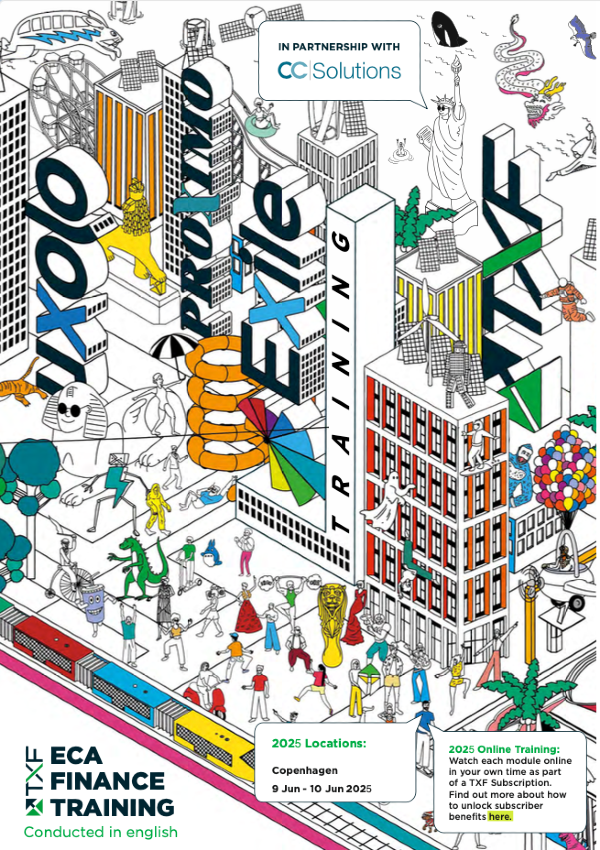Private credit has a growing role in trade and commodity finance
A new research report from TXF Intelligence highlights the increasingly important role of private credit funds in the trade and commodity finance market.

Non-bank lending by private credit investors in the trade and commodity finance sector is increasing and looks set to make even greater inroads as further understanding and increased education of the asset class spreads among alternative asset managers, funds and their investors.
A significant drive in this area has come through increased awareness of the sector in recent years. But also, it has further progressed with the retrenchment of many of the commodity trade finance banks following the high-profile scandals and frauds, particularly in Singapore, that dominated much of the headlines between late 2019 and mid-2020.
Where banks have exited or pulled back it has left the door open for non-bank lenders to take a much bigger role across trade and commodity finance supply chains. It has also given some of the smaller and medium-sized commodity traders an additional and much-needed avenue for securing funds.
The opportunities are immense. The Asian Development Bank very recently reported that the annual trade finance gap was now at $1.7 trillion. Last year, Standard Chartered released figures stating that this gap could even be as much as $3.4 trillion. Of course, these figures are mindboggling, and even a small slice of that potential business which is out there is already being picked up by non-bank lenders, primarily alternative asset managers.
Obviously, there remains a wealth of opportunities within trade finance which has historically very low default rates, as ICC figures verify each year. And within commodity finance the rewards are significant for transactions that have passed all due diligence measures, are properly structured and carefully monitored throughout the term.
While some private credit managers already work in cooperation with trade and commodity banks, there is naturally scope for much greater collaboration. The non-bank lenders have some distinct advantages particularly in being more flexible and swifter in processing than traditional lenders, which can significantly help trade and commodity producers and trader borrowers in such a fast-moving and changing sector.
Real detail about how the role of private credit in trade and commodity finance is evolving has been revealed in a new research report – Private credit and the trade finance opportunity - produced by TXF Intelligence – the research arm of TXF.
The report, produced in partnership with the Alternative Credit Council (ACC) and international law firm Simmons & Simmons, provides an overview of the trends shaping the involvement of private credit in the trade and commodities finance market.
ACC is a global body that represents asset management firms in the private credit and direct lending space. It currently represents over 200 members that manage over $450 billion of private credit assets. The ACC is an affiliate of the Alternative Investment Management Association (AIMA).
Sponsors of the report also include Drumlin Capital Management, Horizon Capital Asset Management, Inoks Capital, Qbera Capital and TradeFlow Capital Management.
The report is a unique piece of research which should prove invaluable in understanding the increasing role of private credit in trade and commodity finance.
The research provides investors with data and insight on the risk and return opportunities in this market. Key findings of the report reveal that:
• Corporates value the faster execution times, bespoke financing structures and strong relationships that they have developed with private credit managers;
• The private credit sector is evolving rapidly through the incorporation of technology, ESG and more sophisticated risk management practices;
• Greater awareness among corporates is needed to help private credit fulfil its potential in the commodity trade finance market;
• Many banks value the partnerships that they have developed with private credit managers; and
• Alternative asset managers, banks and corporates are cautiously optimistic about the growth of the trade finance sector.
Jiri Krol, global head (ACC) comments: “Trade finance offers a significant opportunity for investors seeking assets that offer a differentiated and competitive risk-adjusted return. It can also provide borrowers with the tailored and flexible finance solutions they need to thrive and innovate. For these reasons we expect private credit to become a larger part of the trade finance market, and for trade finance to be soon recognised as its own distinct subset of the burgeoning private credit universe.”
Jolyon Ellwood-Russell, partner, Simmons & Simmons, states: “Our report shows the economic appeal of trade finance to private credit investors is increasingly attractive as an opportunity. Even so, the structures and solutions in trade finance and understanding the underlying flow of goods, money and documents can be complicated. Additional operational, logistical and documentary risks exist associated with the international trade and supply chain and these can be unfamiliar to private credit asset managers and their investors.”
He adds: “However, the report demonstrates the determination and resolve of asset managers, investors and all participants in both the private credit and trade finance market to collaborate and continue to transform the trade and supply chain finance markets into an investible transparent asset class.”
The research involved a quantitative survey of banks, corporates and private wealth managers/asset owners active within trade and commodity finance. The findings from the survey were then explored through qualitative interviews with survey respondents and asset managers.
Become a TXF subscriber for unrestricted access to TXFnews.com 365 days a year
Contact us for individual and team rates by emailing subscriptions@txfmedia.com
Take a look below at some of the exclusive subscriber articles published last week
What is holding blended finance back?
From a lack of common understanding, systematic metrics to evaluate impact to opacity in data, MDBs and DFIs weigh in on the challenges of structuring a blended finance deal.....Read on here
Montezano on BNDES: A different force for change
Gustavo Montezano, head of BNDES since 2019, was appointed to rejig the bank’s lending policies and development role. He has done so. Now he has plans for more change across the whole Brazilian infra finance space – not least of which is catalysing a true project finance syndications market in Brazil.....Read on here
Akbank reduces margin on sustainability-tied refi
Akbank has renewed a $700 million syndicated term loan with margins linked to sustainability performance.....Read on here
Lake Resources near bank mandates for Argentine lithium project
Australia-based Lake Resources is expected to mandate one or two banks for a $630 million ECA-backed limited-recourse financing to back its flagship.....Read on here
Gaslog closes corporate refinancing and Salem sale-leaseback
LNG carrier operator GasLog has closed a $325 million corporate refinancing and $128 million sale-leaseback for.....Read on here
Rockville Capital raises $100m financing for Chilean solar portfolio
Rockville Capital has reached financial close on a $100 million project financing for a portfolio of....Read on here
Mussat exits IFC
Olivier Mussat is set to leave his role as chief investment office at the IFC’s energy division in a move to the private sector after nine years at the DFI. It is still unclear.....Read on here
Daniel Mallo tragically killed in accident
Daniel Mallo – Head of Natural Resources and Infrastructure, Asia Pacific at Societe Generale – sadly died in a tragic accident on October 7....Read on here





